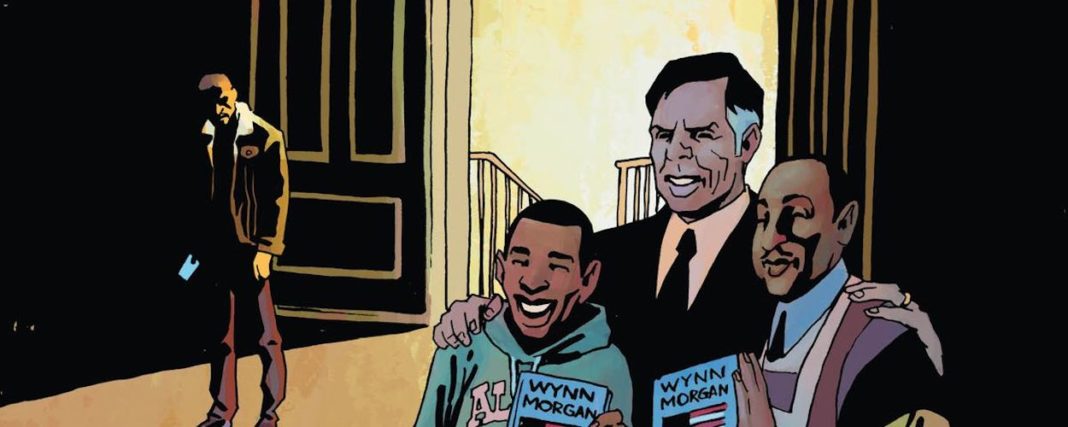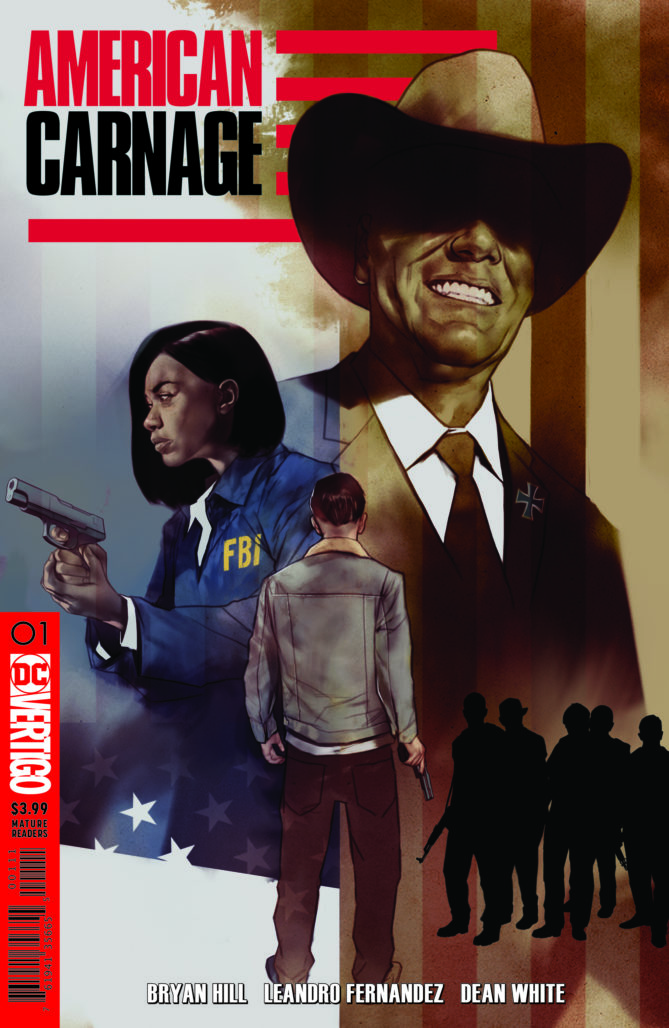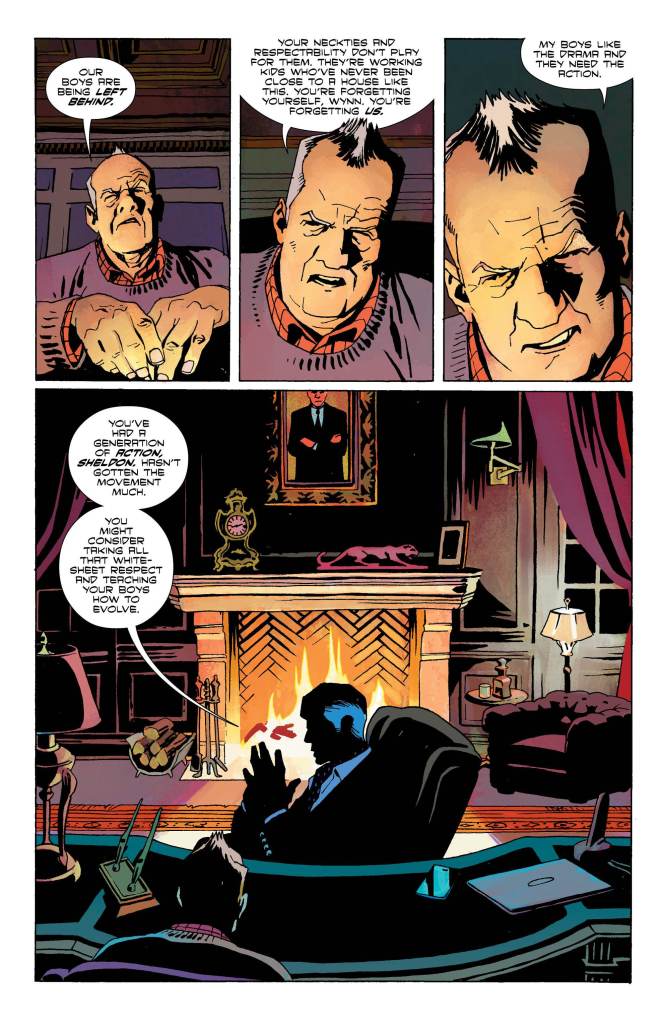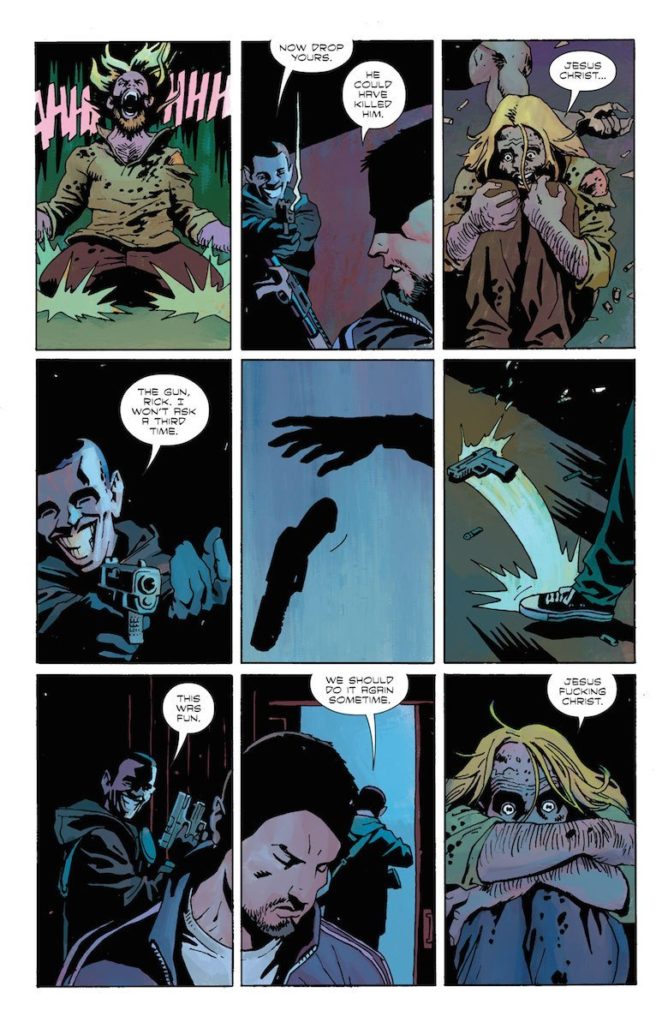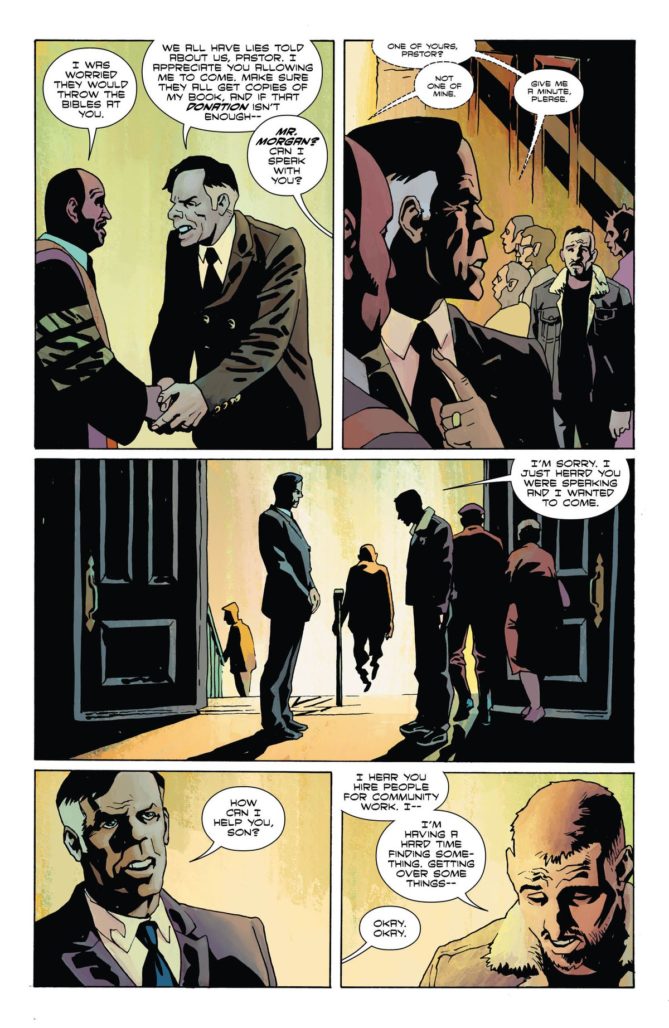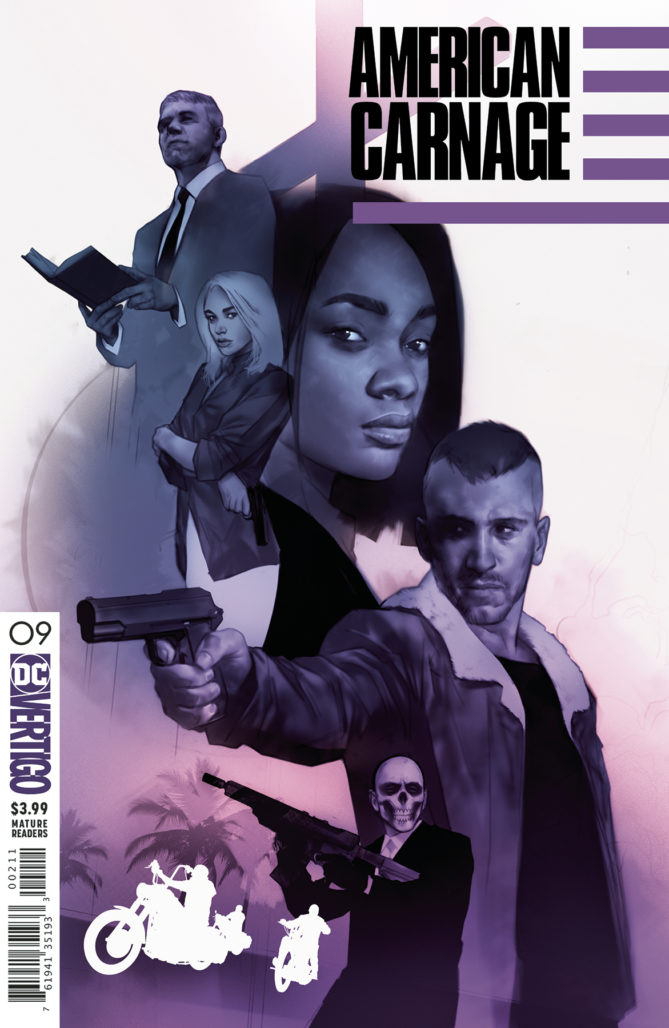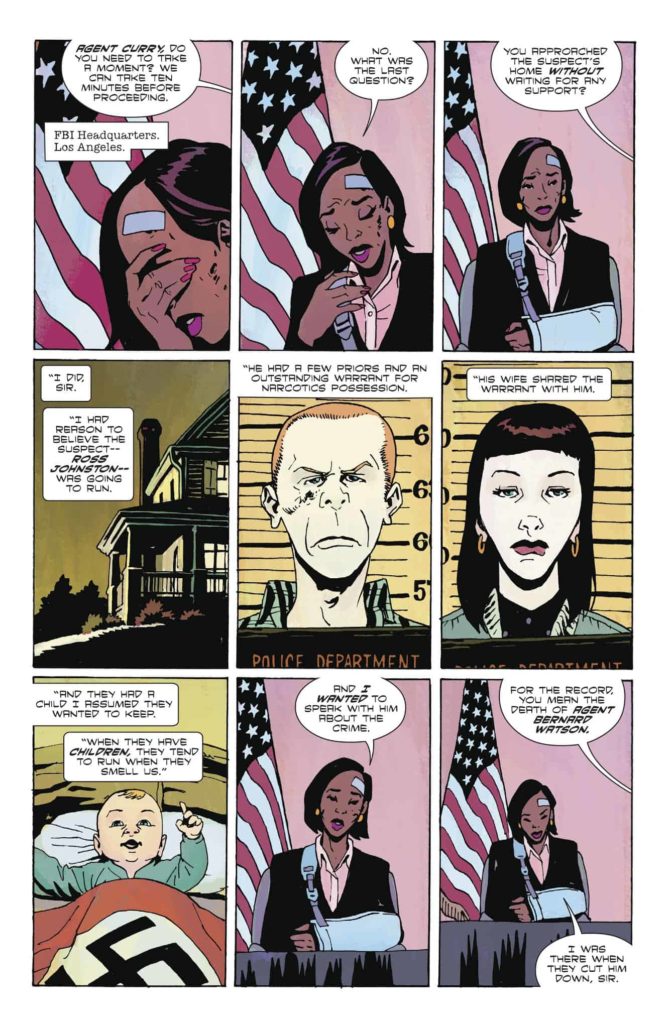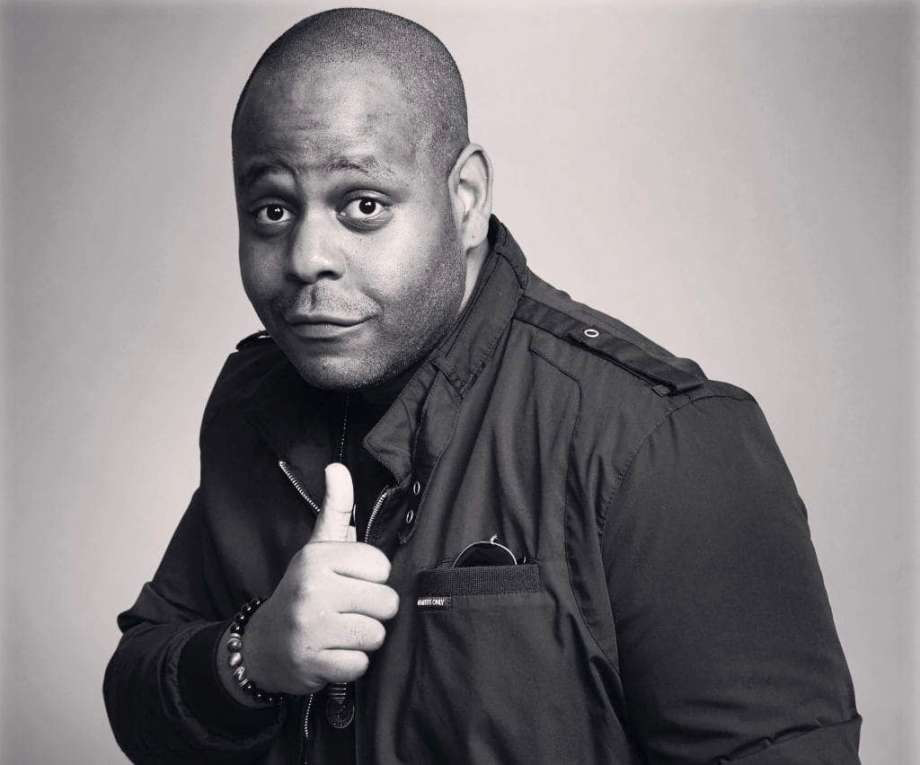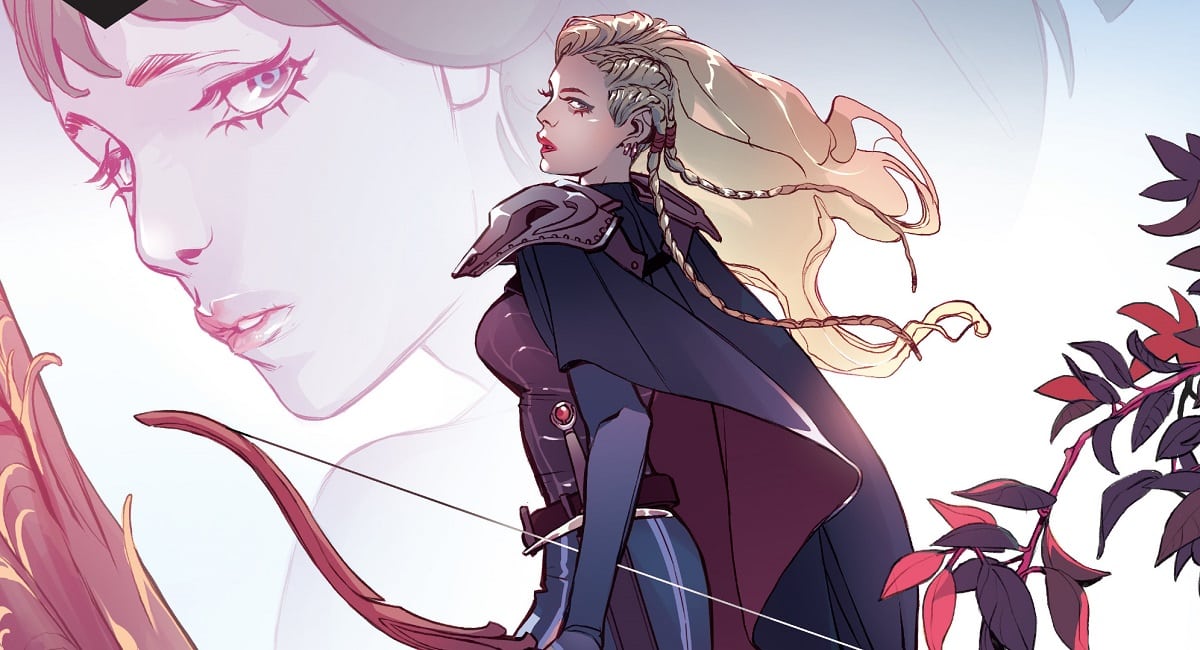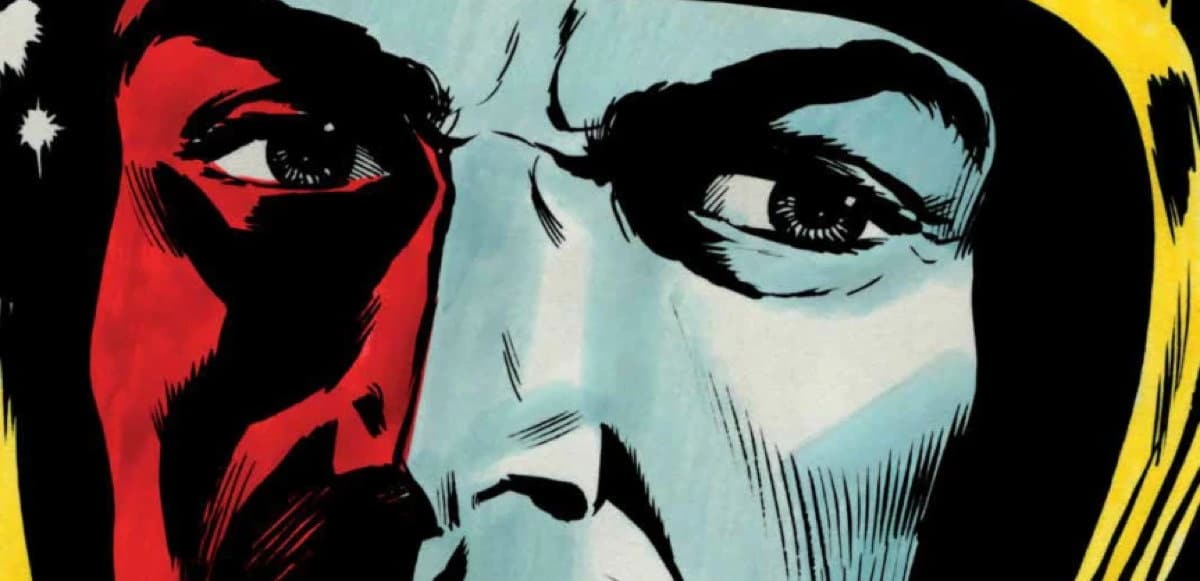American Carnage is a tough series to read, and undoubtedly an even tougher one to write. Though at the outset the storyline felt like one that could have been similar in scope and length to a series like Scalped, it’s not difficult to understand why Bryan Hill was ready to wrap things up after nine brutal issues.
But it’s one of the best crime comics in recent memory, and a major highlight amongst the last wave of Vertigo titles before DC shut down the beloved imprint. I appreciated the chance to speak to Bryan Hill a second time (here’s the first), this time about the culmination American Carnage.
Are you still working on Season 2 of Titans?
Yeah. We’re coming into the last stretch, but we still have a few more weeks in the Writers Room.
It must be nice to have that security being on a writing staff so that you don’t have to rely solely on comics to make a living.
Yeah. I love the format of comics and I grew up reading them. They’re a huge influence on me and my work, but I never want to have to think about comics in terms of revenue. I like having an outlet where I can express myself through storytelling and not get wrapped up in the pragmatic stuff.
My screenwriting work allows me to be selective so I don’t have to take every opportunity that comes my way. I also don’t have to sign an exclusive deal, which allows me to stay a little more fluid. And, if I need to take a break, I can just go ahead and take a break. I consider comics the rawest delivery of my perspective. I almost treat them like mixtapes that can speak to different subjects I want to explore.
A lot of comic book writers starting out have to take whatever projects they’re offered. Not sharing that concern is probably part of why everything you write feels very personal.
Thanks. I came to the industry pretty late. Comics kind of showed up in the middle of my journey, so I have a different relationship to it [than many writers starting in comics]. It’s very beneficial to be able to work in this format because I get real-time feedback from readers, which allows me to see what I’m doing that’s working and what I’m doing that’s not working. Then I can make adjustments because of those interactions.
When writing for movies and television, the work takes longer to come out. I wrote a couple of screenplays a year ago that are only just starting to come together. While working on a monthly comic, the issues come out and get reviewed and people tweet at you about them. That offers some really valuable, up-to-date information about where you are in the rhythm of popular culture. I’m always hungry for growth and feedback.
American Carnage goes to show that growth, it’s my favorite work of yours to date. How did it come together?
Andy Khouri and Mark Doyle reached out and said that Vertigo was releasing a new line of comics for its 25th anniversary. They asked if I had anything I wanted to pitch them. I told them I love Vertigo, but what I’d seen lately from the imprint was a lot of magical realism. I love that genre but didn’t have anything in that space. When I think of my Vertigo my mind goes to 100 Bullets, it goes to Preacher. Those boots on the ground stories.
I said I was working on something and shared my research on white supremacist organizations and the story I wanted to tell. I explained that I didn’t want it to be me, a liberal, standing on a soapbox yelling in people. That doesn’t interest me artistically. What did interest me was to set a character-driven crime story in that milieu, presenting things in an honest way without telling them how to feel about it. Andy and Mark were really up to it.
I knew I didn’t want to spend years of my life in the world of American Carnage because of how much that would take out of me. I told Andy and Mark that it might be twelve, it might be nine, it might be six issues. I’d see how it would play out.
While writing Issue 4, I realized I could tell the story in nine issues. I think that makes a nice sit-down, cover-to-cover experience when all is said and done. That was always my goal. American Carnage is really a graphic novel that was released in parts. Hopefully, the story is rewarding on a month to month basis, but in a lot of ways, it’s best read straight through. Vertigo wasn’t publishing straight to graphic novel at the time, though, and wanted to split it into floppies. I said that’s fine, we can do that, I have natural cliffhangers in the story beats.
A few months after we decided on nine issues it came out that DC was shuttering Vertigo, but that didn’t impact American Carnage because I already planned to get out at nine.
I think releasing the series issue-by-issue served the story really well. I expected it to be the next Scalped, with Richard undercover for a long time. It was a shock to see things ramp up so quickly, making it a very interesting read month by month.
I always left it open to being an ongoing, I wasn’t completely closed off to the idea. I never saw it that way, but you never know. If it was a top seller or turned into a movie or TV series, you want to be there to support it. American Carnage was a way to explore aspects of American criminal society, never tied to one particular character or one particular issue.
The nine issues tie into the racist movements in America because that seems to be in the lexicon right now. But, hopefully, the book stays relevant past today’s [political climate]. At some point, Trump won’t be president. I don’t want my word to be tied to any single figure.
Right. And while the series evokes a feeling of the time we’re in now, the past few years have shown that these attitudes come back around even when we think society is past them.
It’s important to me that nobody in the book is perfect. People are flawed and there’s a lot of hypocrisy. I wanted to engage what’s going on inside the human mind and spirit in the text. Those were the things that really drew me to this story.
I’m just glad that Vertigo was supportive of the series and very supportive to me creatively. Leandro is a better artist than I am a writer, so my writing got better working with him. Dean White is an amazing storyteller, color has real meaning in the book. Pat Brosseau really thought out the lettering. The articulation of hand signaling for sign language was his invention. Ben Oliver created such great covers, I want a big version of the cover to Issue 9 to frame.
Whenever you get published, that’s a gift. It’s insane to go to a bookstore and see your book on the shelf. I take that very seriously and am so grateful for it.
Do you have any other creator-owned series in the works?
I have one. It probably won’t come out until next year, but I’m really excited about it. It’s science-fiction with a strong romantic element, which is a different door for me to walk through that I’m really excited about. Beyond that, it’s really a matter of time.
Right now I’m writing Postal, Angel, Batman and the Outsiders, and Fallen Angels for the new X-Men line. I’m also writing for Titans and working on new screenplays. I want to get back into filmmaking and get back into music. My wife and I are developing a line of streetwear that combines fashion, music, narrative filmmaking.
It’d be nice if I release one thing a year that’s original. I’m more likely to publish finite stories, maybe four to six issues long. That doesn’t mean I’ll never visit that world again, but those issues would tell a complete story.
Listening to you list everything off, I don’t know how you get so much done!
I don’t sleep [laughs]. You figure it out. I wake up, do a little writing before going to the Titans Writers Room, and write a little more after coming home. You put it on a schedule, and sometimes I’ll write ahead. It’s a juggle but somehow you fit it all in.
Well, you’re doing a great job at it. I’m excited to see where things go from here!
Make sure to check out American Carnage. You can follow Bryan Hill on Twitter @bryanedwardhill and check out his YouTube channel The Hill Administration.


